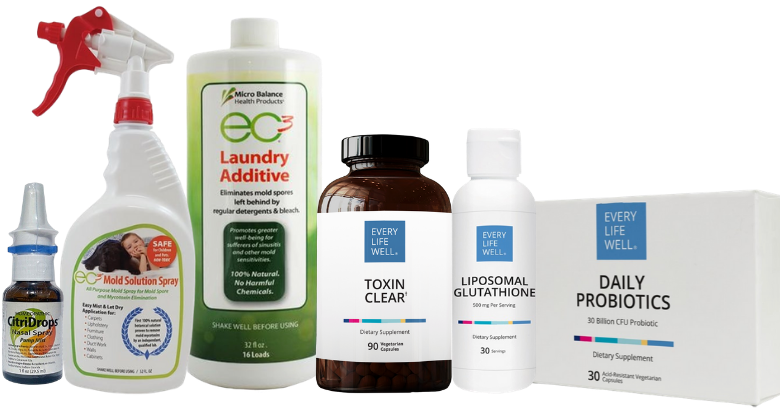You probably realize that your genes can predispose you to certain diseases, and that if you have a “faulty” gene, this is something you inherit at birth.
However, you may not realize that our genes are constantly affected by our environment, our lifestyles and our nutrition and can be influenced by these factors either to be more expressive or to be less active.
Methylation is one of the important epigenetic processes by which gene activity is turned on or off, up or down, often in response to environmental triggers and can then impact our health.
What is epigenetics and how is it related to DNA methylation?
Epigenetics is the study of changes to an organism caused by modification of gene expression, rather than by changes to the DNA itself. In other words, these changes affect our health by “dialing” genes activity up or down without altering the genes.
As methylation affects how genes express, methylation can accelerate disease or slow it down or stop it. It’s important to have the right amount of methylation …. Not too much and not too little.
There are other processes that modify gene expression through epigenetics, such as histone modifications, but methylation is our focus for this article.
An Epigenetics Analogy
All the cells in our bodies have the same DNA sequence: a cell from your heart has the same DNA as one from your stomach. That means some other process decides how individual cells develop and differentiate.
It is similar to a computer monitor. Each pixel of the monitor has the same potential, yet each pixel acting differently allows the same monitor to show images, words, colors and anything else monitors show. All of these differences happen simply because individual pixels are turned off, on, up or down.
Likewise, the effects of the genes that make up our DNA can be regulated by turning them on or off, up or down. This is how one cell helps us pump blood while another helps us digest and absorb our food.
But one extremely important factor, makes your DNA very different from a computer monitor: many of the changes can be stored–like a screenshot– and passed on to our descendents. The study of how these changes affect us is epigenetics.
Epigenetic therapy is now a major focus of cancer therapies. Clinical studies have shown that drugs that affect methylation have significant potential in suppressing cancer.
But methylation’s value is not limited to cancer therapy. Therefore, understanding its many effects on our bodies, our health and even the process of aging is an important part of epigenetics and will eventually unlock a wide range of therapy options and dietary and lifestyle modifications.
What is methylation and why is it important?
When I recommend methylation testing to my patients, they often ask me why methylation is so important, especially since the testing is usually not covered by insurance. I explain that understanding their methylation profile offers an in-depth understanding of an opportunity to assess how well they are methylating and find ways to improve their methylation efficiency.
Methylation is the process of joining a methyl group (CH3) to DNA, which plays a major role in gene expression. While it is a normal process in regulating gene activity in humans, the process can sometimes go awry.
Under certain circumstances, poor methylation can be caused by inherited or acquired genetic mutations (or Single Nucleotide Polymorphisms, SNPs) that mediate gene activity in such a way that existing diseases are accelerated or new illnesses arise.
For example, while methylation’s effect in cancer is well-known, it is also known to have an effect in other conditions such as atherosclerosis, diabetic retinopathy, autoimmunity, Parkinson’s, cardiac dysfunction, anxiety, trauma, and even schizophrenia.
What is a DNA methylation test?
When I order DNA methylation testing, we screen for SNPs that can affect many significant biochemical processes such as detoxification, hormonal balance and Vitamin D function.
The presence or absence of SNPs can affect a person’s risk for disease which would not be obvious — that is, they may not be experiencing any current symptoms and no family member may previously have displayed the disease that they are at risk for.
These health risks can be reduced by lifestyle changes, and altered biochemical processes may be alleviated by diet and nutritional supplements.
Along with the DNA methylation test, it can also be helpful to test the intermediates in the methylation pathway and the nutrients levels that impact methylation. Often I will also follow imbalances in insulin sensitivity, bone health, cancer risks, cardiovascular health, detoxification, fertility, mitochondrial function and metabolism, and neurotransmitter balance.
In today’s environment, where people are exposed regularly to many toxic substances such as mercury, lead and Bisphenol A (BPA), understanding the effects and accumulation of these toxins is essential.
Many toxins including lead and BPA inhibit the function of methyltransferases, plus, mercury inhibits methionine synthase, which also affects methylation. Most of the time people don’t even realize they are being exposed.
Methylation plays an essential role in the detoxification processes, such as the elimination of heavy metals. As it also plays a role in the generation of neurotransmitters, certain mental health conditions might be affected by methylation patterns.
When methylation is addressed, it can help with recovery and prevention.
Interpreting test results can require expertise. To assess how a specific individual will be affected it is necessary to develop a clear picture of SNP effects, which may involve further metabolic tests, combined with evaluation of the person’s symptoms and responses to previous medical interventions.
Identifying SNPs that influence health and disease risk allows clinicians to support their patients with appropriate lifestyle and nutrition changes to maximize health and wellness and help the patients be proactive about their health.
What is MTHFR?
One of the first methylation SNPs to be identified was Methylenetetrahydrofolate reductase (MTHFR SNP).
When methylation was becoming a focus of functional health, MTHFR was identified is an important methylation enzyme. It is responsible for the activation of folate for the subsequent reduction of homocysteine to methionine.
Certain single nucleotide polymorphisms (SNPs), or variants of this gene, result in the reduced capacity of this enzyme. Indeed, MTHFR variants are associated with increased risk for many diseases, including depression, fertility issues, insomnia, and thyroid conditions.
Having an MTHFR variant (SNP) might not indicate you need serious medical treatment, it could just mean you need to take the right supplemental vitamin B. Sometimes, instead of genetic testing, high homocysteine levels in blood testing can be used for screening and to assess the appropriate treatment.
Folate (B9) is a naturally occurring nutrient found in many foods and the body naturally converts it into the methylated form.
When an MTHFR SNP is present that natural conversion is limited, so it can be helpful to take the Methyltetrahydrofolate supplement or prescription, which is folate that is already methylated — so it’s in the form the body can use more readily. Changing to the bioavailable folate is often a step in the right direction.
How can testing for methylation help us diagnose diseases better?
Much progress has been made in understanding methylation patterns particularly in cancer scenarios. Smoking can lead to a huge amount of extra methylation, leading in turn to an increased risk for a variety of conditions including lung cancer.
Unfortunately for the people who develop lung cancer, though, they often only learn about it because they start showing symptoms. By this time, the cancer may be very difficult to treat.
Epigenetic testing is currently being explored as a way of screening for patterns of gene regulation that indicate cancer at extremely early stages that are easier to address. For example, it may soon be possible for a doctor to ask a patient to cough into a specially designed collection tube to detect methylation patterns to check for lung cancer much before symptoms have presented.
How do diet and supplements affect methylation?
Nutrient deficiency is one of the principal reasons for methylation issues. Two important nutrients that influence methylation pathways are Vitamin B12 and folate (B9). However, other nutrients such as methionine, cysteine, taurine, zinc, magnesium, potassium, riboflavin (B2) and niacin (B3), also play substantial roles.
Insufficient intake of these nutrients can affect useful methylation. Foods rich in these nutrients, such as spinach, mushrooms, beets, eggs, organ meats and shellfish, can support methylation.
How do you treat methylation imbalances?
Typically, I first address nutrient imbalances as I also recommend adding specific nutrients and foods to a daily diet. But I also recommend promoting a healthy gut biome to bring intestinal bacteria back into balance.
I often also check for toxin levels, as environmental stresses can cause some methylation pathways to go into overdrive, which calls for them to be rebalanced.
The patient might also be taking medication for another condition, which could affect the methylation pathway.
So to sum up, when checking for methylation patterns I often follow these steps:
- Order a methylation pathway test and methylation gene test
- Test for nutrient deficiencies
- Test for toxins
- Identify medications which could compete with methylation
- Test microbiome balance and,
- Retest above as needed
Then we take steps to rebalance the methylation processes through diet and nutrition. Sometimes I also prescribe plant adaptogens. These contain molecules that are very powerful for rebalancing the body.
Plant adaptogens include phytonutrients such as curcumin, betanin, anthocyanins, quercetin, and lycopene, all of which are abundant in a balanced, nutrient-dense diet, but additional supplementation is still helpful in some cases.
How is methylation associated with aging?
The study of methylation patterns is already indicating differences between healthy versus unhealthy aging. For example, methylation patterns of an individual can predict biological age better than chronological age.
Emerging data shows that aging is accompanied by a decline in methylation patterns, along with specific methylation of certain stretches of DNA.
Methylation is postulated to play a role in longevity, and while there is still much to learn about methylation, as this is reversible change to our DNA it is a highly appropriate target for disease intervention.
Eventually, methylation patterns will almost certainly be commonly used as a predictor for your health, your predisposition to disease and even your aging. This is why it is very important to understand your methylation to get a jump start to optimize your health.













